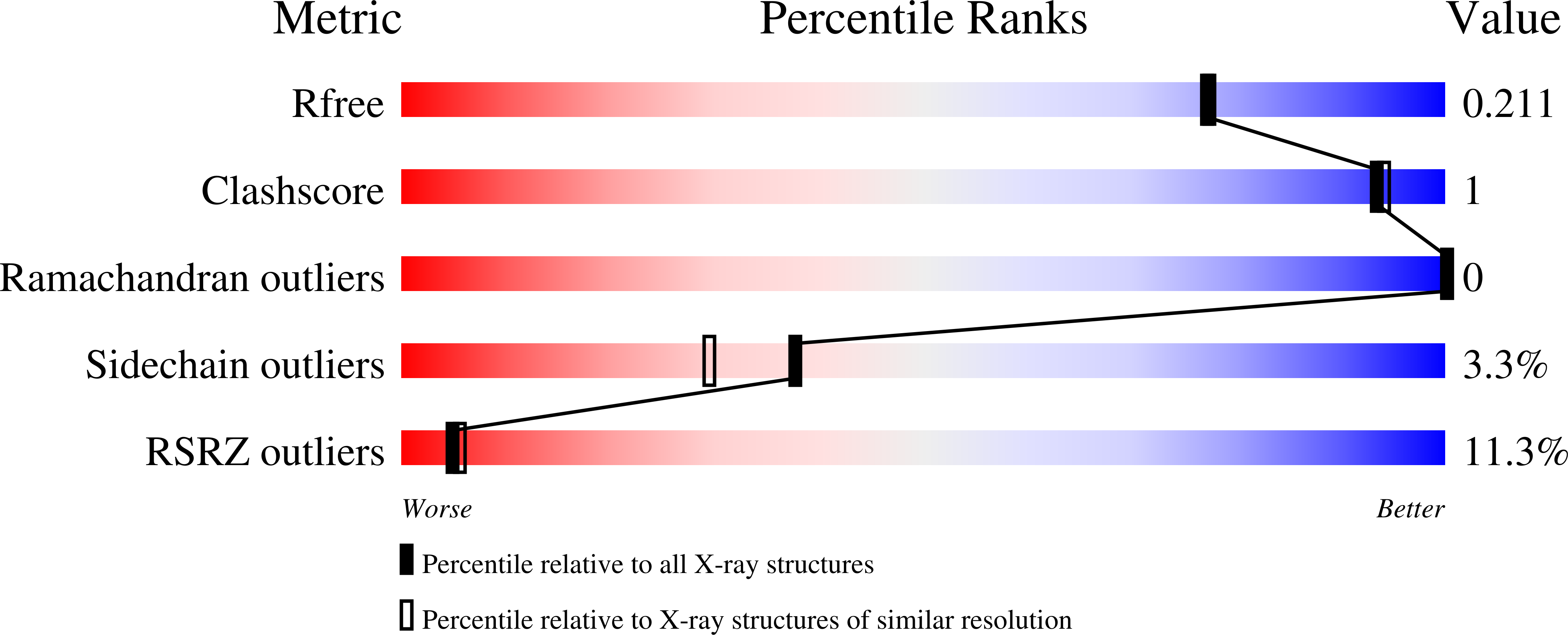Tracking in Atomic Detail the Functional Specializations in Viral Reca Helicases that Occur During Evolution.
El Omari, K., Meier, C., Kainov, D., Sutton, G., Grimes, J.M., Poranen, M.M., Bamford, D.H., Tuma, R., Stuart, D.I., Mancini, E.J.(2013) Nucleic Acids Res 41: 9396
- PubMed: 23939620
- DOI: https://doi.org/10.1093/nar/gkt713
- Primary Citation of Related Structures:
4BLO, 4BLP, 4BLQ, 4BLR, 4BLS, 4BLT, 4BWY - PubMed Abstract:
Many complex viruses package their genomes into empty protein shells and bacteriophages of the Cystoviridae family provide some of the simplest models for this. The cystoviral hexameric NTPase, P4, uses chemical energy to translocate single-stranded RNA genomic precursors into the procapsid. We previously dissected the mechanism of RNA translocation for one such phage, 12, and have now investigated three further highly divergent, cystoviral P4 NTPases (from 6, 8 and 13). High-resolution crystal structures of the set of P4s allow a structure-based phylogenetic analysis, which reveals that these proteins form a distinct subfamily of the RecA-type ATPases. Although the proteins share a common catalytic core, they have different specificities and control mechanisms, which we map onto divergent N- and C-terminal domains. Thus, the RNA loading and tight coupling of NTPase activity with RNA translocation in 8 P4 is due to a remarkable C-terminal structure, which wraps right around the outside of the molecule to insert into the central hole where RNA binds to coupled L1 and L2 loops, whereas in 12 P4, a C-terminal residue, serine 282, forms a specific hydrogen bond to the N7 of purines ring to confer purine specificity for the 12 enzyme.
Organizational Affiliation:
Division of Structural Biology, The Wellcome Trust Centre for Human Genetics, University of Oxford, Headington, Oxford OX3 7BN, UK, Institute for Molecular Medicine Finland (FIMM), University of Helsinki, 00290 Helsinki, Finland, Department of Environmental Research, Siauliai University, Vilniaus gatvė 88, 76285 Siauliai, Lithuania, Diamond Light Source Limited, Harwell Science and Innovation Campus, Didcot, Oxfordshire OX11 0DE, UK, Department of Biosciences, University of Helsinki, Biocenter 2, PO Box 56, 00014 Helsinki, Finland, Institute of Biotechnology, University of Helsinki, Biocenter 2, PO Box 56, 00014 Helsinki, Finland and Astbury Centre for Structural Molecular Biology and School of Cellular and Molecular Biology, University of Leeds, Leeds LS2 9JT, UK.
















